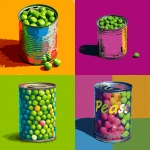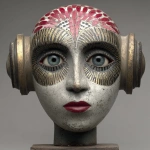Explore the Best AI Image Gallery

Quantum Creativity: Where Imagination Meets Computation
The realm of creativity is on the cusp of a profound transformation, driven by the burgeoning field of quantum computing. This revolutionary technology, harnessing the enigmatic principles of quantum mechanics, promises to reshape our understanding of artistic expression and unlock unprecedented creative possibilities.
Potential Applications in the Creative Industry
Quantum computings unique ability to process vast amounts of data and explore complex algorithms opens doors to a myriad of applications within the creative industries:
- Generative Art: Quantum algorithms can generate novel and intricate artistic patterns, textures, and compositions, pushing the boundaries of traditional art forms.
- Music Composition: Imagine composing symphonies or soundtracks with quantum-powered algorithms that explore harmonic structures and melodies beyond human comprehension.
- Interactive Storytelling: Quantum computing can create immersive and personalized storytelling experiences, where narratives adapt and evolve based on user choices and interactions.
- Virtual and Augmented Reality (VR/AR): Enriching VR/AR environments with quantum-powered simulations and realistic physics will create unparalleled levels of immersion and interactivity.
Beyond Artistic Expression: Quantum Creativitys Impact
The influence of quantum computing extends far beyond artistic endeavors. It has the potential to:
- Accelerate Design Processes: Quantum algorithms can optimize complex design parameters, leading to more efficient and innovative product development.
- Empower Collaborative Creativity: Quantum-powered platforms can facilitate seamless collaboration between artists, designers, and engineers across geographical boundaries.
- Democratize Creativity: By making advanced creative tools accessible through user-friendly interfaces, quantum computing can empower individuals with diverse backgrounds to participate in the creative process.
Ethical Considerations in Quantum Creativity
As we venture into this uncharted territory, it is crucial to address the ethical implications of quantum creativity:
- Bias and Fairness: Ensuring that quantum algorithms are trained on diverse and representative datasets to avoid perpetuating societal biases in creative outputs.
- Ownership and Authorship: Establishing clear guidelines regarding ownership and attribution when AI-generated content is involved in artistic collaborations.
- Transparency and Explainability: Developing methods for understanding and interpreting the decision-making processes of quantum algorithms to ensure transparency and accountability in creative outputs.
Future Trends in Quantum Creativity
The future of quantum creativity is brimming with possibilities:
- Quantum-Enhanced VR/AR Experiences: Immersive environments that respond to user emotions and intentions, blurring the lines between reality and imagination.
- Personalized Creative Tools: Adaptive software platforms tailored to individual creative styles and preferences, fostering a more personalized and intuitive creative experience.
- Quantum-Driven Artistic Education: Integrating quantum computing concepts into art education curricula, empowering future generations with the tools to harness this transformative technology.
The convergence of quantum computing and creativity marks an exciting chapter in human ingenuity. As we continue to explore this frontier, we can anticipate groundbreaking artistic expressions, innovative design solutions, and a profound reshaping of our creative landscape.





](https://images.ai-img.art/thumbnails/150/6a577517a359cd2bc6212d6b0f12c7cab660841317023550a76c84f409c7f2d0.webp)




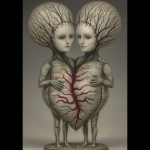
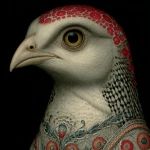


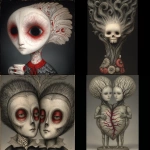

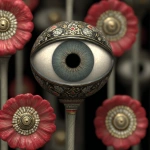
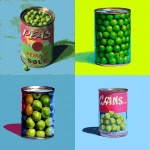







](https://images.ai-img.art/thumbnails/150/6a9bb97a3f1c45ab616724cc54bca010cbcc2d658a9c0e4581aa181c88046444.webp)

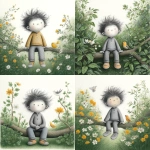
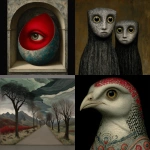
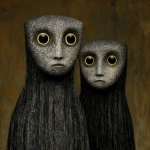


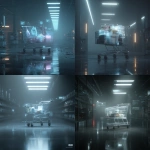
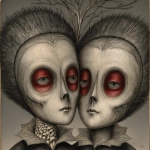

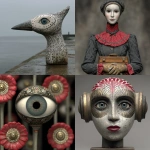




](https://images.ai-img.art/thumbnails/150/45237dfa7845159b860f9e234c48c4418e8efcb52b4d15da4493f46e6a99f337.webp)
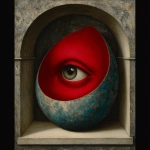

](https://images.ai-img.art/thumbnails/150/065f0b2e150f4cc43a9da80d822e8a385e9e50f2f6ff2cc3be7639cfd74952da.webp)

](https://images.ai-img.art/thumbnails/150/1b14bd827b740aca3b0d8efa7ed6865e28c7c8382172f3f565c96b6c5f64ca78.webp)
